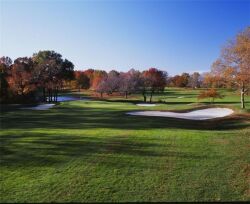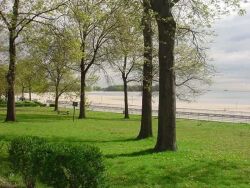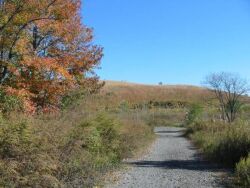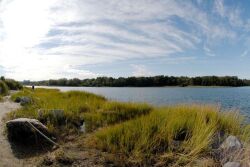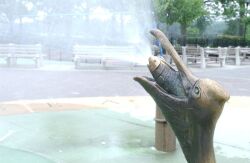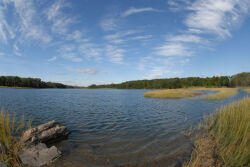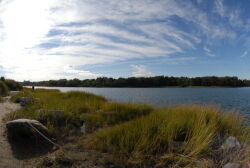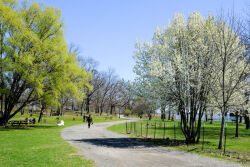Pelham Bay Park
Orchard Beach - Horseshoe Crabs in New York City Parks
Every May and June, horseshoe crabs emerge from Pelham Bay and the Long Island Sound onto Orchard Beach in Pelham Bay Park. Female horseshoe crabs arrive on the beach to lay their eggs, with their male counterparts literally in tow. Males grasp onto the back of the female’s shell using their specially adapted, hooked legs, sometimes two, three, or four males onto one female. When they arrive on the beach, female horseshoe crabs dig a hole in the sand and lay up to 20,000 tiny olive-green eggs inside. The males then rush to be the first to fertilize.
This process is heavily tied to the lunar cycle and its effects on the tides. The mating begins when the moon’s force is strongest and the high tide allows the horseshoe crab to venture further onto the beach. As the force weakens, the water is never able to reach the eggs. Two weeks later, when the moon’s force peaks again, the eggs are ready to hatch and the water sweeps the newborns into the sea. While this timing has provided protection from the sea, the eggs face other dangers. The horseshoe crab is not the only animal to be found in swarms on the beach at this time of year. The thousands of protein-rich eggs provide a feast for hungry migrating birds, which can eat enough to double or even triple their body weight before moving on. Some birds are believed to time their migrations to coincide with this mating ritual and its resulting source of nutrition.
The horseshoe crab (Limulus polyphemus) has been around since before the dinosaurs, roughly 1.2 billion years. This prehistoric creature may resemble a crab, but is actually more closely related to the spider and scorpion. While the horseshoe crab has a tough exterior that has helped its survival, it is one of the most harmless creatures on the seashore. Its high tolerance for pollutants has also allowed the horseshoe crab to thrive where other species have failed. When not swarming on the beaches in the spring, the horseshoe crab stays mainly on the ocean floor, feeding on mollusks, worms, and seaweed. In the winter, it burrows into the ocean sediment. While the lifespan of horseshoe crabs in the wild is not clear, they have been known to live up to 15 years in aquariums.
This “living fossil” plays an important role in modern medical science. Its blood contains Limulus Amebocyte Lysate (LAL), which is used by scientists for the detection of bacterial toxins. Tests using LAL are required by the Federal Drug Administration for medications and vaccines. Blood from the horseshoe crab is used in these tests, but it is not harmed during the extraction. The horseshoe crab is also used to make a variety of products, from fertilizers and conch bait to hairspray and contact lenses. These uses have led to the overharvesting of the horseshoe crab and a decline of its population in the Atlantic. However, the ancient horseshoe crab can still be seen crawling onto the shores of the Bronx, at Orchard Beach, every year.
Check out your park's Vital Signs
Clean & Safe
Green & Resilient
Empowered & Engaged Users
Share your feedback or learn more about how this park is part of a
Vital Park System

Know Before You Go

Contacts
Pelham Bay Park Administrator's Office: (718) 430-1891
Bartow-Pell Mansion Museum: (718) 885-1461
Park Enforcement Patrol: (718) 430-1815
Pelham Bay & Split Rock Golf Course: (718) 885-1258
Turtle Cove Driving Range: (718) 885-2646
Orchard Beach Nature Center: (718) 885-3466
Urban Park Rangers: (718) 548-0912
Events and General Parks Information: 311
Bronx Equestrian Center: (718) 885-0551
Friends of Pelham Bay Park: (718) 430-4685
Bronx Recreation: General Information: (718) 430-1825
Bronx Recreation: Special Events Permits: (718) 430-1848
Bronx Recreation: Sports Permits: (718) 430-1840
Bronx Recreation: Tennis Permits: (718) 430-1848

